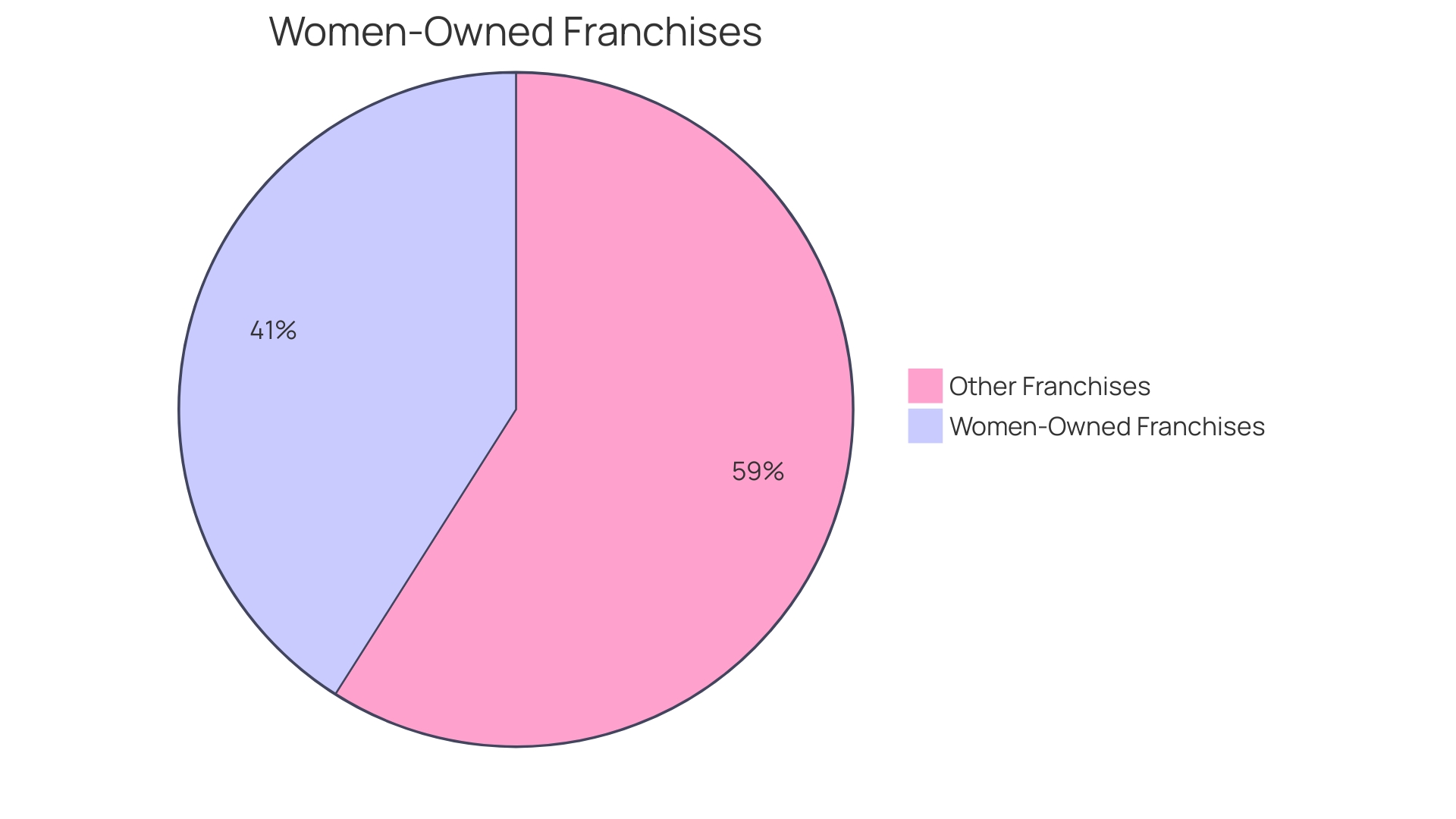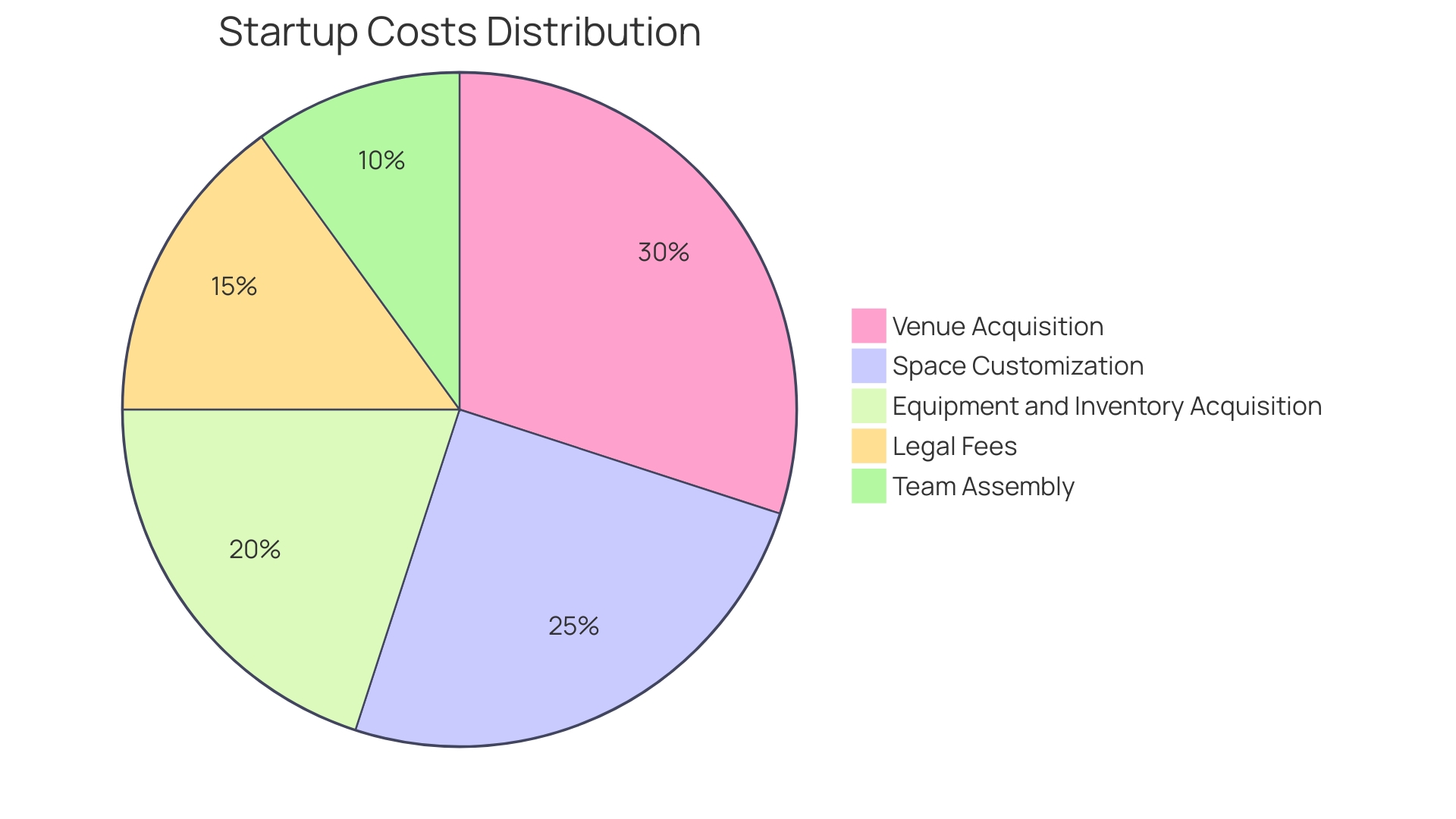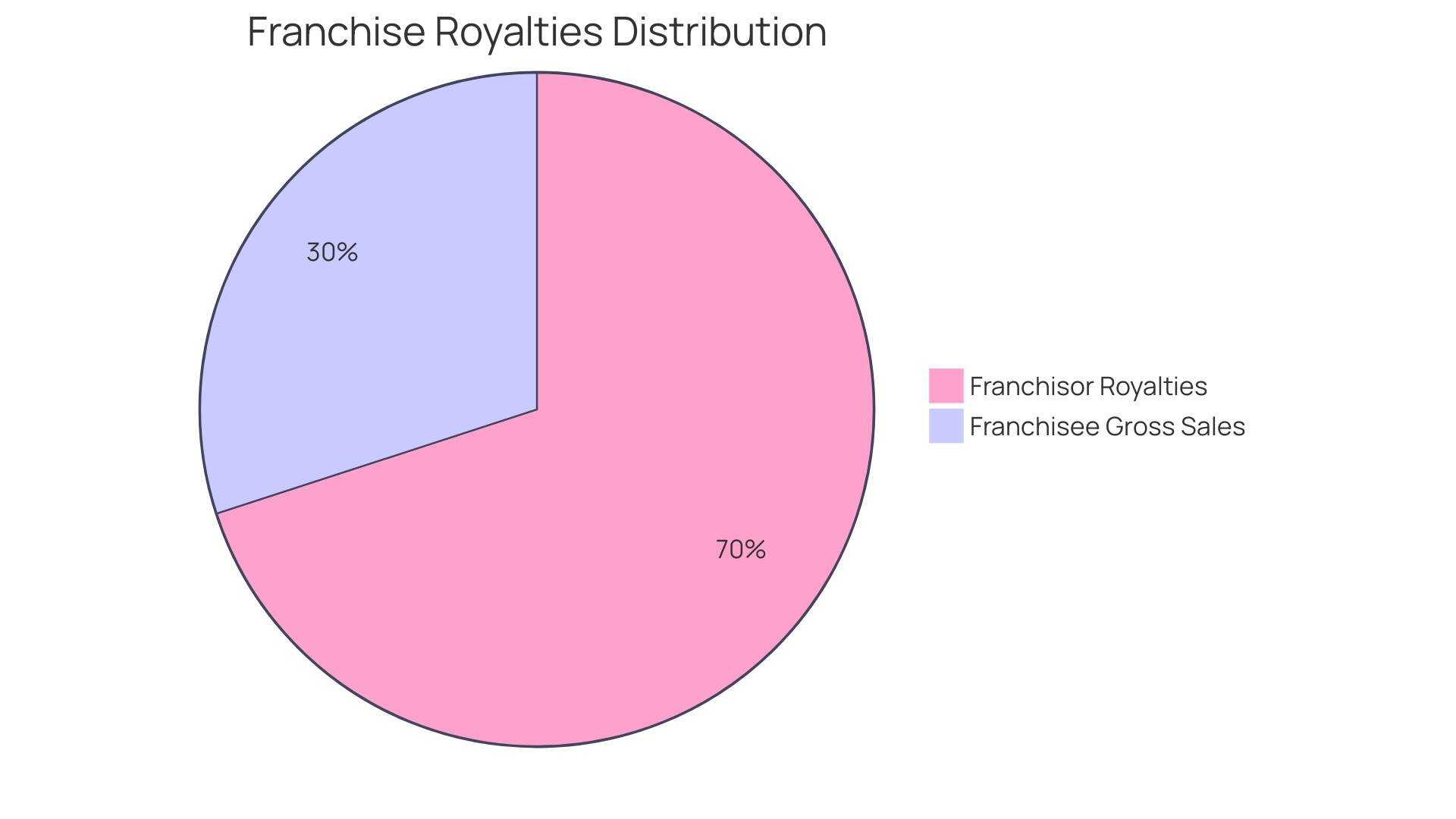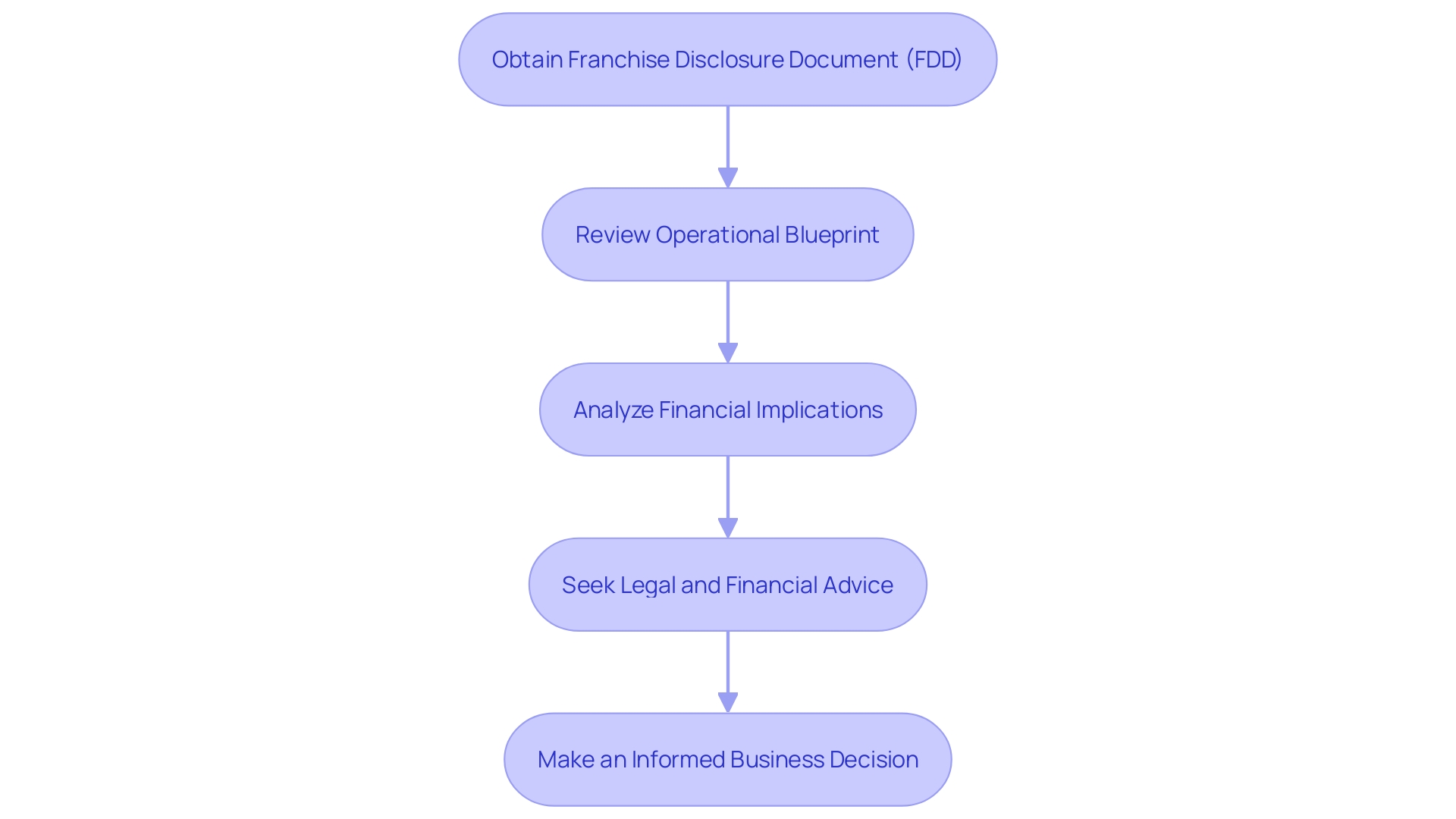Introduction
Franchising can be an exciting opportunity for those looking to transition into business ownership. However, understanding the financial commitments involved is crucial before taking the plunge. One key aspect to consider is the franchise fee, which is the initial cost paid by franchisees to join a franchisor’s system.
But the franchise fee is just the beginning. Ongoing royalties, startup costs, recurring fees, and other hidden expenses also come into play. It’s essential for prospective franchisees to thoroughly research their intended market, evaluate the franchise agreement, and understand the full spectrum of fees involved.
By doing so, they can make a well-informed investment and set themselves up for success in the world of franchising.
Types of Franchise Fees
Entering the world of franchising involves a myriad of considerations, not the least of which is understanding the financial commitments. Franchise charges, in particular, are crucial as they represent the initial cost that franchisees pay to a franchisor to join their system. It’s not merely a single fee but a series of payments that encompass various aspects of the franchising agreement.
Primarily, the charges provide the business partner with the privilege of utilizing the trademark of the franchisor, gaining access to their operational systems, and obtaining initial training and assistance. This investment secures a spot within the franchisor’s network and the associated brand recognition. However, it’s essential to delve deeper and recognize that these fees can vary considerably among franchisors.
The initial licensing fee is just the starting point. It prepares individuals interested in owning a business for ongoing royalties which are typically a percentage of the monthly gross sales. Recent industry movements, such as the increase of royalty fees by McDonald’s from 4% to 5%, indicate a change in the landscape, in line with other businesses whose royalties range between 5% to 6%, and sometimes even reaching 12% in certain sectors.
In this dynamic financial environment, it is essential for individuals who are interested in becoming franchise owners to conduct careful research and fully understand the franchise agreement – the legal document that outlines the relationship between the franchisor and the franchisee. This contract details the rights to the franchisor’s intellectual property and the obligations each party agrees to uphold, ensuring that franchisees are making a well-informed investment.
When you enter into an agreement to operate a business, it’s not just about the cost but the value of what you’re getting in return. The business system should provide a model of proven success, support, and an established brand that can be utilized for business growth. As the industry evolves with factors like technological advancements and regulatory changes, staying informed and seeking expertise can be pivotal in navigating the financial terrain of franchising.
For those with the entrepreneurial spirit, the path of owning a business can be a gateway to business ownership. The key lies in performing due diligence, understanding the full spectrum of fees involved, and aligning with a business opportunity whose values and vision resonate with your own business aspirations. With the right approach, the investment in a business opportunity could unlock the door to a rewarding venture.
The Franchise Fee: Initial Payment
Exploring the realm of franchising, the foundation of the connection between the franchisor and franchisee is the franchise agreement—a legally binding document outlining the authorizations, entitlements, and obligations of both parties. Critical to this agreement is the fee, an initial expense paid by the for the permission to operate under the established brand and system. This fee is not uniform across the board; it differs from one business model to the next, reflecting the brand equity and industry specifics.
When entering into such a business opportunity, it’s important to acknowledge that the licensing fee encompasses much more than just the use of a name. It’s an investment into a business model that has been honed over time, complete with initial training and ongoing support. This one-time payment is the gateway to a host of resources provided by the franchisor to ensure the franchisee’s start-up phase is as smooth as possible.
The trend in franchising, particularly among women entrepreneurs, has been on the rise. An impressive 24% increase in women-owned businesses that operate under a franchising model over the past decade, and a notable 41% of new businesses in the last 24 months in the U.S., indicates a growing attraction to the concept of franchising as a means of becoming a business owner. With franchising, comes a structured framework for entrepreneurship, offering lower risk due to the established brand and a business model that has been proven to work. This makes it a compelling option for those looking to dip their toes into the entrepreneurial world without the same level of risk associated with starting an independent venture from scratch.
Based on industry insights, the financial commitment for entering ownership should be carefully evaluated. With the potential for considerable returns, the investment aligns not only with market demands but also with the franchisee’s ambitions and capabilities. Prospective business owners are encouraged to extensively investigate their intended market, ensuring their business plan is sturdy and customized to the particular franchise they aim to establish.

Startup Costs: Initial Investment
When considering the initiation of a business model, it’s essential to factor in startup costs beyond the initial licensing fee. These expenditures encompass a variety of areas such as securing a venue, customizing the space to fit brand standards, acquiring necessary equipment and inventory, navigating the legal landscape for licenses and permits, and assembling a competent team. The investment required can differ significantly depending on the nature of the business and its geographical location.
For instance, entering the bustling fast-food sector with a renowned brand like Subway could entail significant costs, but also the potential for substantial returns. With the fast-food industry’s valuation exceeding $900 billion and a CAGR surpassing 5%, the average Subway outlet can generate annual revenues over $490,000. Franchisees can anticipate net incomes ranging from $30,000 to $70,000 annually.
The agreement is a crucial element in this process, granting the individual the rights to utilize the company’s intellectual property, systems, and brand, under specified conditions. This legal document outlines the mutual commitments, providing the franchisee with a framework to protect their investment.
In the era of digital transformation, technology businesses are also emerging as powerful contenders, offering innovative solutions and riding the wave of increasing demand for tech advancements.
To accurately project the financial commitment, potential business owners should utilize tools like the SBA’s online business calculators, which aid in budgeting by considering the specificities of starting a business in their locale. Thorough planning and understanding the expenses involved are essential steps toward a successful business venture.

Recurring Fees: Ongoing Expenses
Upon successfully launching their franchise, franchisees must be financially prepared for various ongoing costs payable to the franchisor. These regular charges are essential for the ongoing use of the franchisor’s trademark, support, and proven business model. Among these, royalty charges represent a significant, ongoing financial obligation. Usually, royalty charges represent a portion of the franchisee’s total sales and are paid on a consistent basis. This percentage can vary by franchise but commonly ranges from 4% to 6% in the fast-food industry, with some franchises charging upwards of 12% depending on the market and the support provided by the franchisor.
Royalty charges are not the sole recurring expenses, as individuals who own a business under a franchise agreement might also incur costs for advertising, technology, and renewal. These charges play a part in national marketing endeavors, technical assistance, and the privilege to keep functioning under the franchisor’s name, respectively. It’s important for individuals interested in starting a business under a franchise model to have a complete comprehension of these charges prior to signing a franchise agreement, as they have a significant impact on the long-term economic planning and profitability of their business. Thorough evaluation of the disclosure document for business opportunities, including the average revenue and profit margins, will provide insights into the potential earnings and help in assessing the economic viability of the franchise option.
The landscape of franchise fees is subject to change, as seen with McDonald’s recent increase in royalty fees, marking the necessity for individuals who own franchises to stay informed and adaptable. Such adjustments reflect evolving market conditions and the cost of maintaining a competitive edge in the industry. For potential franchise owners, it is crucial to conduct thorough research and possibly seek expert advice to navigate the complexities of franchising and safeguard their investment.
– Royalties: Percentage of Gross Revenue
Royalties, the lifeblood of the franchisor-franchisee relationship, are a testament to the symbiotic nature of this business model. As a franchisee, your gross sales serve as the base from which a predetermined percentage is allocated to the franchisor, typically on a monthly or quarterly schedule. These payments are crucial, not only as the franchisor’s prime revenue stream but also as the financial fuel for the ongoing support and resources that franchisees receive. This support includes marketing thrusts, operational systems, and the continuous evolvement of the brand—factors essential in maintaining the business’s relevance and competitive edge in a bustling marketplace.
In a setting where almost 800,000 business establishments prosper, adding over $825 billion to the economy and sustaining millions of jobs, the business model has demonstrated its resilience and capacity for expansion. The success of the business relies on the effectiveness of the operations conducted by the individuals who have obtained the rights to use the franchisor’s intellectual property and systems through the franchise agreement. Such an agreement is not just a legal necessity but a strategic foundation that empowers the franchisee to leverage a proven business model, while safeguarding their investment.
It’s imperative to bear in mind that the franchising landscape is as diverse as it is dynamic. With a variety of sectors experiencing growth, it is essential for potential business owners to conduct comprehensive research, aligning their interests and resources with a business opportunity that offers not only compatibility but also the potential for profitability. This exploration should encompass all facets of the franchise’s offering, including the fee—a significant and recurrent financial commitment that forms part of the total investment.
The fee for the licensing and subsequent royalties are indicative of the franchisor’s big idea—an innovative concept or a refreshing take on existing offerings—that has already resonated with customers, as seen in the case of The Halal Guys, whose popularity predated discussions about licensing. Whether you’re a service provider or a product vendor, the goal remains the same: to increase success through the growth of the network, ultimately enhancing the brand’s value and presence across the market.
To navigate the complexities of the franchising world and make an informed decision, leveraging the expertise of industry consultants can be invaluable. They will assist you in evaluating the profit potential of different business opportunities, considering market trends, financial projections, and a thorough analysis of the industry. This strategic approach is crucial to choosing a business opportunity that not only aligns with your goals but is also poised for success in the ever-evolving economic landscape.

– Advertising & Marketing Fees: Percentage of Revenue
Franchisees often contribute to a collective marketing fund, which is pivotal for the brand’s national or regional promotion. This mandatory contribution is usually a set percentage of the franchisee’s gross revenue. The funds serve to enhance the visibility of the brand through well-orchestrated marketing campaigns and robust advertising efforts.
The digital era has revolutionized the way these funds are allocated, with a shift towards online strategies such as email marketing, social media engagement, and search engine optimization. These modern tactics are critical as they leverage the internet’s extensive reach for brand promotion, customer interaction, and sales generation.
For individuals interested in joining a franchise, the benefit of contributing to this marketing fund lies in the access to a tested and proven business model. This model ensures a consistent and coherent brand message across various marketing channels, whether they be digital or traditional.
As per Jonathan Maze, the Editor-in-Chief of Restaurant Business, who has expertise in finance for quick-service restaurants, the initial payment made by individuals who operate under the franchised brand allows them to have the right to operate, while the continuous charges contribute to the overall marketing efforts of the brand.
Moreover, industry data and forecasts from sources like The Myers Report and the ANA underscore the importance of informed decision-making and strategic marketing in the franchising sector. These resources indicate that the success of a business is increasingly connected to its ability to adjust to the changing marketing landscape and consumer preferences.
It’s crucial for potential franchisees to comprehend the anticipated contributions towards marketing funds and how these costs are utilized to maintain the brand’s competitive advantage and market presence. This knowledge is crucial for evaluating the overall financial commitment and potential profitability of the investment opportunity.
– Other Fees: Technology, Insurance, Training, etc
When exploring the world of owning a franchise, it’s important to grasp that the initial costs associated with the franchise and advertising are just the start. Franchisees often face additional costs that are essential for the smooth operation and support of the business. These charges can include technology fees for proprietary software, obligatory insurance coverages, and even training fees for ongoing educational programs. The use of cutting-edge technology, for instance, has become a linchpin in the franchising world, streamlining operations and fostering scalability and part-time ownership models. An example of this can be seen in how some accounting firms, like Prix Fixe, offer a suite of technology services and support that significantly enhances their clients’ efficiency, sometimes saving them up to 10 hours per client during end-of-year audits.
Furthermore, the agreement for the business model – a legally binding paper that defines the privileges and responsibilities between the franchisor and franchisee – will specify these monetary obligations. This agreement licenses the franchisee to use the franchisor’s valuable intellectual property, systems, and brand, with the promise of a support system to aid in the venture’s success. Hence, it’s crucial for potential business owners to carefully examine the business agreement, making sure they have a thorough comprehension of all the charges included, from the initial capital to the ongoing costs that will impact the daily activities and profitability of their enterprise. Taking into account the local market dynamics and potential earnings, as outlined in the disclosure document, can also provide insight into the financial viability of the business. This comprehensive approach to assessing a business opportunity can help protect one’s investment and pave the way for a successful enterprise.
Factors Influencing Franchise Fees
The cost of franchising can vary significantly based on a multitude of aspects. To begin, one must take into account the initial fee for starting a business and the costs of developing the location. For instance, starting a new traditional KFC establishment demands a capital ranging from $1.4 million to $3.1 million, encompassing diverse expenses like real estate, construction, equipment, and operating costs. Franchisees also need to demonstrate substantial liquid capital to ensure they can support the business financially when necessary.
Furthermore, potential earnings and the local market’s potential are critical factors. Business owners should carefully examine the disclosure document, paying attention to sections that provide information about typical earnings and profit margins. Understanding demographics, competition, and consumer preferences in the target location can also significantly influence the viability and achievement of the business.
Additionally, the established reputation and support system of the franchisor are important. Using McDonald’s as an example, its business model benefits from global brand recognition and a loyal customer base. Most franchisees begin by acquiring an existing McDonald’s outlet, which may come with an already established customer base, thus affecting the overall cost.
It’s clear that each business has distinctive costs and considerations. Whether it’s a fast-food giant like KFC or McDonald’s or a mobile oil change service like Luby Dudes and Spiffy Green, which offers simplified services with a growing demand for convenience, the investment varies. Ultimately, a diligent assessment of all associated costs, revenue potential, and market dynamics is imperative for making an informed decision in the franchising world.
Hidden Costs Beyond Franchise Fees
Exploring the realm of business opportunities through franchising can be a lucrative venture, but it’s crucial to be aware of not only the upfront fees associated with joining a franchise but also the additional costs that may not always be readily apparent. When considering fast-food businesses, for instance, the initial investment can seem daunting. Subway, a household name with an average annual gross revenue of over $490,000 per location, commands a notable presence in the industry. In the same way, Burger King, charging a fee of $50,000, offers entrepreneurs the advantage of its longstanding brand recognition. Yet, these figures only scratch the surface. Besides the fee for joining the business model, prospective franchise owners must consider expenses like training, marketing, location development, and a variety of other costs that contribute to the total investment.
The fast-food industry, valued at over $900 billion in the United States with a CAGR exceeding 5%, signals a growing market with significant opportunities. However, success requires a strategic approach to selecting a franchise. It’s crucial to assess factors like startup costs, potential earnings, and the local market dynamics. Additionally, embracing a mindset of building a company rather than merely buying a job can lead to wealth accumulation. As emphasized by industry insights, individuals who reinvest profits to open multiple locations can create a semi-passive income stream, shifting from daily operations to providing overarching support for their businesses.
Potential franchisees should thoroughly review the Franchise Disclosure Document for detailed economic information, including average revenue and profit margins, and consider the long-term implications of their investment. A cheap upfront cost may be enticing, but as with any business decision, it’s the hidden, ongoing costs that can impact profitability. Understanding the entire monetary obligation is crucial for a prosperous business endeavor, whether it involves regular payments, employee remuneration, or contractual responsibilities.
Understanding the Franchise Disclosure Document (FDD)
Embarking on a franchising journey commences with a critical step: understanding the Franchise Disclosure Document (FDD). This comprehensive guide outlines the operational blueprint of the business model, including initial fees for starting a business under a specific brand, ongoing royalties, and other monetary obligations. An agreement for a business opportunity not only outlines the monetary aspects but also grants the privileges to use the owner’s trademarks, service marks, proprietary systems, and brand identity. The agreement is fundamentally a license, which allows the franchisee to operate a business under the franchisor’s established brand, ensuring adherence to their operational standards and conditions.
The FDD provides a thorough examination of the franchisor’s legal and monetary history, including litigation and bankruptcy records, which may impact a potential franchisee’s choice. The document also gives initial investment estimates, allowing for a better comprehension of the monetary needs involved in commencing and sustaining the business.
It’s crucial for potential franchisees to meticulously analyze the FDD and grasp its implications for their investment. Given the significant monetary commitment involved in purchasing a business opportunity, the agreement serves as a safeguard for the entrepreneur’s business venture. Hence, it is recommended to seek legal and financial advice to navigate the intricacies of the business agreement and to effectively protect one’s investment.
Experts in the industry, like the experienced attorneys specializing in hospitality at the Global Hospitality Group®, emphasize the significance of understanding the agreement and FDD for business opportunities. Their vast knowledge in the realm of hospitality properties and numerous management and licensing agreements emphasizes the significance of comprehensive due diligence in the franchising process.
For example, National Property Inspections offers a tangible example of a franchisor providing comprehensive support to their partners, including training and a dedicated support staff, to ensure success. The clear financial expectations that potential investors should seek when contemplating an investment in a business opportunity are demonstrated by the transparent upfront costs and fees outlined in their FDD.
Ultimately, the FDD and franchise agreement are indispensable tools for potential franchisees, laying the groundwork for a well-informed business decision and successful franchise operation.

Conclusion
In conclusion, venturing into franchising requires a thorough understanding of the financial commitments involved. Beyond the franchise fee, there are ongoing royalties, startup costs, recurring fees, and hidden expenses to consider. Prospective franchisees must conduct extensive research, evaluate the franchise agreement, and understand the full spectrum of fees involved.
Success in franchising lies in aligning with a franchise that offers a proven business model, support, and an established brand. Staying informed about industry trends and seeking expert advice are crucial in navigating the financial complexities of franchising.
Startup costs, such as venue acquisition, customization, equipment, and permits, should not be overlooked. Recurring fees, including royalties, advertising, technology, and renewal fees, are ongoing expenses that franchisees must be financially prepared for.
The reputation of the franchise, potential earnings, and local market dynamics are important factors to consider. Thoroughly reviewing the franchise disclosure document and seeking legal and financial counsel are essential steps in evaluating the financial viability of a franchise opportunity.
In conclusion, prospective franchisees should approach franchising with diligence, conducting comprehensive research and understanding the full range of fees involved. By doing so, they can make an informed investment and increase their chances of success in the franchising world.


